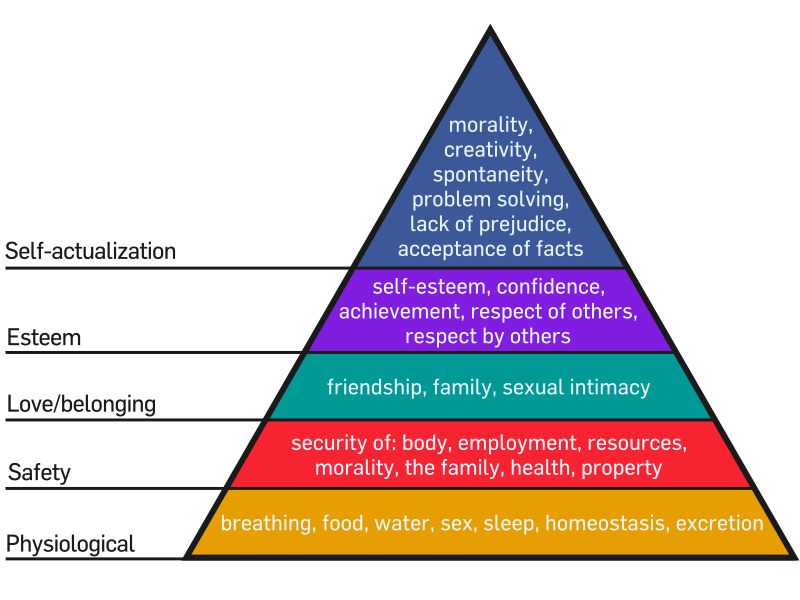 Don’t give me that look. Clearly you don’t care about the homeless, because you don’t buy Street Spirit.
Don’t give me that look. Clearly you don’t care about the homeless, because you don’t buy Street Spirit.
Street Spirit is an independent Bay Area “publication of the American Friends Service Committee (AFSC) that reports extensively on homelessness, poverty, economic inequality, welfare issues, human rights issues and the struggle for social justice”. AFSC generously pays for this publication to be printed and then hands it out to homeless people to sell to support themselves. It’s a great idea, and I want to be clear that this post is not a criticism of AFSC’s goals – it’s an admirable organization, and I only want it to succeed.
The problem: people are not especially altruistic.
Maslow’s Hierarchy of Needs is an essential concept for anyone dealing with humans as part of their job. It’s quite simple: we have different levels of needs, and it’s hard to focus on the higher levels (example: creativity) when we don’t have the lower levels taken care of (example: breathing).

Giving a homeless person money is arguably part of the “Esteem” level. While one might suggest that it’s self-actualization, I posit that most people like to advertise when they are donating to someone. While some morality is involved, a great deal of our motivation is gaining respect of others.
However, more important to humans than Esteem is Safety. This doesn’t just mean physical safety – it also includes financial security. And dealing with the homeless exposes our brains to the possibility that we too could, potentially, end up with no money and no home.
So the Safety requirement of our brain is fighting with the Esteem part of our brain…and most of the time, we just look down and walk by that homeless guy with the Street Spirit.
Part of the problem with Street Spirit currently is that it’s full of political articles about the homeless. While, again, it’s admirable that the AFSC wants to help inform us, this is again triggering the Safety-fearing part of our brain. Not only do we have to confront the potentiality of homelessness when buying Street Spirit, but we also have to read about it? No thanks. 99% of people I know who buy Street Spirit don’t ever read any of it.
The solution: make this a product that we want to buy. Appeal to both our need to seem like a good person AND our personal desire for entertainment.
Make Street Spirit an all-comics newspaper and the homeless will make a lot more money.
 We all love comics. Pretend all you want, but anyone who reads a paper is just waiting until they have read enough of the real content to feel justified in reading the funny pages. The opportunity here is this: nobody reads newspapers anymore, but they still want to read the funnies.
We all love comics. Pretend all you want, but anyone who reads a paper is just waiting until they have read enough of the real content to feel justified in reading the funny pages. The opportunity here is this: nobody reads newspapers anymore, but they still want to read the funnies.
Seriously. Find some independent comic strip artists (or see if you can’t get some big-name webcomic artists to contribute) and try this just once. I guarantee you’ll see a huge increase in sales. We get our Esteem, the homeless get some cash, and the world is a slightly better place.





